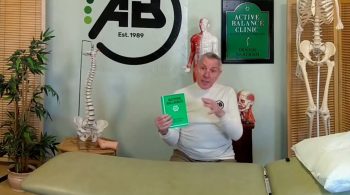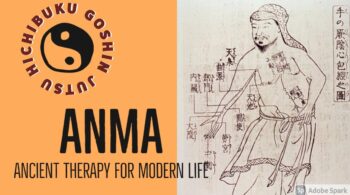Title: The Healing Power of Grounding: Connecting with the Earth for Better Health
Introduction:
Rebecca and Josh Tekele, filmmakers specializing in environmental films, experienced the negative effects of toxic exposure while filming a movie about an oil spill in Louisiana. Rebecca’s health suffered, and she faced the possibility of fertility issues. Despite the warnings, they decided to try to have children. Unfortunately, they faced challenges, including a miscarriage and a birth defect in their daughter. Desperate for solutions, they explored various alternative therapies, including grounding or earthing. This blog post will explore their journey and the potential benefits of grounding for overall health and well-being.
The Concept of Grounding:
Grounding, also known as earthing, is the practice of connecting with the Earth’s natural energy by physically touching the ground with bare feet or using grounding devices. The idea is that the Earth is a source of electrons, and by connecting with it, our bodies can absorb these electrons, which may have various health benefits.
The Benefits of Grounding:
1. Reduced Inflammation: Inflammation is believed to be the root cause of many health issues, including chronic pain, arthritis, and heart disease. Grounding has been shown to reduce inflammation in the body, leading to improved overall health.
2. Improved Sleep: Many individuals who practice grounding report better sleep quality and reduced insomnia. This may be due to the regulation of circadian rhythms and the reduction of stress and anxiety.
3. Enhanced Immune Function: Grounding has been found to support the immune system by reducing oxidative stress and promoting a balanced immune response.
4. Pain Relief: Grounding has been associated with pain reduction, particularly in individuals with chronic pain conditions such as fibromyalgia and arthritis.
5. Improved Mood and Mental Health: Grounding has been shown to have a positive impact on mood, reducing symptoms of depression and anxiety. It may also help regulate stress hormones and promote a sense of calm and well-being.
Personal Experiences with Grounding:
Rebecca and Josh Tekele discovered grounding through a friend who recommended the practice to help their daughter’s chronic sickness. Skeptical at first, they decided to give it a try. To their surprise, they noticed significant improvements in their daughter’s health, including reduced inflammation and improved sleep. Inspired by their daughter’s progress, they began grounding themselves and experienced various benefits, such as reduced pain and increased energy.
Scientific Research on Grounding:
While grounding is still a relatively new area of research, several studies have explored its potential benefits. These studies have shown positive effects on inflammation, sleep quality, pain management, and overall well-being. However, more research is needed to fully understand the mechanisms behind grounding and its long-term effects.
Incorporating Grounding into Daily Life:
Incorporating grounding into daily life can be as simple as spending time outdoors with bare feet on the ground, walking on grass or sand, or using grounding mats or sheets while sleeping. It is important to note that grounding should not replace conventional medical treatments but can be used as a complementary practice.
Conclusion:
Rebecca and Josh Tekele’s journey with grounding highlights the potential benefits of connecting with the Earth’s energy for improved health and well-being. While more research is needed, grounding shows promise in reducing inflammation, improving sleep, and enhancing overall health. Incorporating grounding into daily life may be a simple and accessible way to support our bodies’ natural healing processes.
Title: The Healing Power of Grounding: A Natural Approach to Health
Introduction:
In this blog post, we will explore the concept of grounding and its potential benefits for overall health and well-being. Grounding, also known as earthing, involves connecting with the Earth’s natural energy by physically touching the ground with bare skin. While this practice may seem unconventional, many individuals have reported positive effects on their immune system, sleep quality, and even weight loss. Despite skepticism and resistance from mainstream medicine, the growing number of people experiencing the benefits of grounding suggests that it may be worth exploring as a natural approach to health.
The Journey to Grounding:
The story begins with a family’s struggle when their child falls ill and ends up in the emergency room due to difficulty breathing. Seeking a solution, they stumble upon the concept of grounding. They discover that when children are sick, their sleep quality is compromised, leading to inflammation in the body. By practicing grounding, their child’s sleep improves, inflammation reduces, and her immune system becomes significantly stronger.
Unexpected Transformation:
As the family embraces grounding, they notice unexpected changes in the father’s health as well. He shares his experience of feeling grounded and how it has transformed his life. Grounding helps quiet the sympathetic nervous system, allowing the adrenals to recover from exhaustion caused by excessive stimulation. This process can alleviate adrenal fatigue, a precursor to various health issues, including weight gain.
Weight Loss and Other Benefits:
The father reveals that other women have reported weight loss as a result of grounding. While it is not a guaranteed weight loss solution, grounding can positively impact mental and physical well-being. By reducing pain, stress, anxiety, irritability, and depression, grounding allows the body to function optimally. This, in turn, can lead to increased energy levels and a boosted metabolism.
Challenges in Mainstream Acceptance:
Despite the growing evidence and personal testimonials, grounding has not yet gained widespread acceptance in mainstream medicine. The conventional system heavily relies on expensive interventions, which may hinder the integration of more cost-effective natural approaches like grounding. Additionally, resistance to change and the influence of profit-driven corporations may impede the adoption of novel ideas.
The Power of Grounding:
The blog post highlights the potential impact of grounding on the current epidemic of diseases and discomfort. Grounding has the ability to alleviate pain, which could contribute to reducing the reliance on opioids. However, the resistance to integrating new ideas often persists until those who oppose them are no longer influential. Skeptics are encouraged to try grounding for themselves and experience its benefits firsthand.
Embracing Grounding:
One of the remarkable aspects of grounding is that it does not require a doctor’s recommendation. Anyone can try it at any time, as it is our birthright to connect with the Earth. The blog post emphasizes the simplicity of grounding – taking off one’s shoes and standing barefoot on the ground or sitting on the earth can instantly alleviate pain and inflammation.
Reclaiming Life:
The blog post concludes by acknowledging the countless individuals who have regained their lives through grounding. Despite the lack of mainstream recognition, the growing number of success stories speaks volumes. The family in the video shares their commitment to spending more time outside, staying connected to the Earth, and embracing the benefits of grounding.
Conclusion:
While grounding may not yet be widely accepted in mainstream medicine, the experiences of individuals who have embraced this practice cannot be ignored. Grounding offers a natural and accessible approach to improving sleep, reducing inflammation, and potentially even aiding in weight loss. As more people discover the benefits of grounding, it may become a valuable addition to our overall health and well-being practices.
Read More: How Quickly Does Grounding Start To Benefit Your Body? (Laura Koniver MD)
Read More: Guaranteed Ways to Increase YouTube Sorts Traffic





